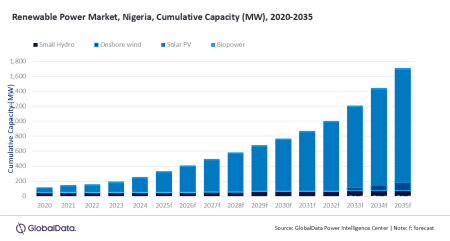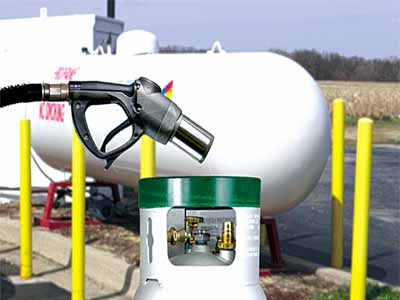18 April 2012, Sweetcrude, ABUJA – Total Exploration and Production Nigeria on Tuesday inaugurated the giant Usan field, which lies around 100 kilometers off the South East Nigerian coast, at a ceremony attended by Dr. Goodluck Ebele Jonathan, the Minister of Petroleum Mrs Diezani Allison-Madueke, Chairman and CEO of Total, Mr. Christophe de Margerie, President of Exploration & Production at Total, Yves-Louis Darricarrère, and partners of the Usan project.
“We are delighted to inaugurate Usan today together with our concession holder, the Nigerian National Petroleum Corporation (NNPC) and our partners. The realization of the Usan Project has served as an eloquent metaphor for our business model in Nigeria: we are proud of the exceptional contribution Usan has made to the growth of local capacity and the high level of Nigerian Content in the Project,” Christophe de Margerie stated during the ceremony.
He noted that production commenced in the field on February 24, 2012 and it marked a milestone in the company’s activities in Nigeria. “At plateau, USAN will add another 180,000 barrels of oil per day to Nigeria’s production. For us in Total, we are proud of this achievement.
“The success of this endeavour further illustrates Total’s expertise in the deepwater exploration and continuing deployment of technological innovations in deepwater production. The USAN Field is Total’s second major deepwater development in Nigeria after Akpo and sixth in Africa, after Girassol, Dalia, Pazflor fields in Angola and Moho Bilondo in Congo.”
De Magerie observed that Total’s upstream operations in Nigeria, which started in 1962, have continuously embraced new frontiers and overcome new challenges to make Total Nigeria a very active multinational oil and gas company with the most rapid portfolio, reserves and production growth. Total Upstream will be 50 years in Nigeria, this May.
 He noted that, “From the Onshore to the classical offshore and now to deep offshore, Total has made significant successes, adding to Nigeria’s reserves base and production capacity. But beyond geographical and geological frontiers, Total has also embraced new concepts and business models, making it one of the pioneers in the monetization of gas by our early investment in the NLNG, to be followed by the Brass LNG.
He noted that, “From the Onshore to the classical offshore and now to deep offshore, Total has made significant successes, adding to Nigeria’s reserves base and production capacity. But beyond geographical and geological frontiers, Total has also embraced new concepts and business models, making it one of the pioneers in the monetization of gas by our early investment in the NLNG, to be followed by the Brass LNG.
“To develop Usan Total as operator has introduced a number of technological innovations, among which is a solution that drastically reduces gas flaring and thus minimizes the environmental impact of the Project.”
Total E&P Nigeria Ltd., a wholly owned subsidiary of Total, operates OML 138 with a 20% interest, while Nigerian National Petroleum Corporation (NNPC) is the concession holder. Total’s partners are Chevron Petroleum Nigeria Ltd. (30%), Esso E&P Nigeria (Offshore East) Ltd. (30%) and Nexen Petroleum Nigeria Ltd. (20%).
USAN, a new benchmark for Nigerian content
Discovered in 2002, the Usan field lies in water depths ranging from 750 to 850 meters. The Usan development comprises a spread moored Floating Production, Storage and Offloading (FPSO) vessel designed to process 180,000 barrels per day and with a crude storage capacity of 2 million barrels. Its dimensions, 320 meters long and 61 meters wide, make it one of the largest vessels of this type in the world. The development involves 42 wells connected to the FPSO by a 70 kilometers long subsea network.
 The Usan project has involved an unprecedented level of Nigerian local content, with over 500,000 engineering man-hours and 14 million construction and installation man-hours performed in Nigeria. FPSO construction included an offshore integration of 3,500 tons of locally fabricated structures. In addition, large-scale training and capacity building programs were put in place, raising the skills of the local workforce to the benefit of future projects.
The Usan project has involved an unprecedented level of Nigerian local content, with over 500,000 engineering man-hours and 14 million construction and installation man-hours performed in Nigeria. FPSO construction included an offshore integration of 3,500 tons of locally fabricated structures. In addition, large-scale training and capacity building programs were put in place, raising the skills of the local workforce to the benefit of future projects.
Total Exploration-Production in NigeriaIn 2012 Total will celebrate fifty years of its presence in Nigeria. The Group’s production in Nigeria was approximately 290,000 barrels of oil equivalent per day in 2011, coming from operated and non-operated licences on both offshore and onshore assets.
Deepwater developments are one of Total’s main growth avenues in Nigeria, where the Group operates the Akpo field in OML 130 and is also preparing to develop the Egina field in the same lease.
According to a statement from the company, Total is committed to the gas and power program of the Nigerian government through its participation in LNG projects (NLNG, Bras LNG) and in gas pipelines for domestic gas supplies to power plants.
“Total deploys an assertive local content policy, with locally worked hours accounting for 60% and 90% respectively of the Usan and OML 58 projects in Nigeria. The Group is also helping to build the deepwater expertise of Nigerian contractors, especially in the Niger Delta, a region that is home to more than half of Total’s Nigerian employees and most of its operations in the country.
In the area of Safety and environment, the company has been consistent in its overall efforts to reduce our carbon footprints. In 1999, our OML 58 site was flared down to safety flaring status.
“With all approvals for the Ofon phase 2, the completion of the project will mean that the only flaring done is what is absolutely necessary for safe production. We continue to make the best efforts to produce oil and gas with the highest possible respect for the environment and welfare of communities,” the statement noted.




